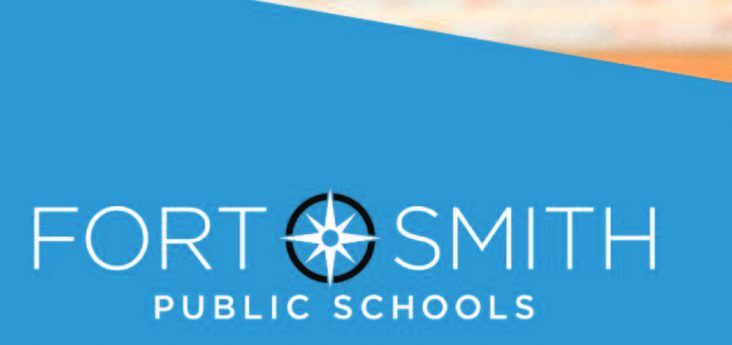Fort Smith Public School admin seeks changes in pandemic policies, reviews virtual school options
by October 27, 2020 4:31 pm 1,590 views

Fort Smith Public Schools is looking to tweak some of its policies and practices – especially with physical education equipment – in response to the COVID-19 pandemic for the spring semester.
Superintendent Dr. Doug Brubaker told the FSPS school board at its regular meeting Monday (Oct. 26) that after meeting with staff, it has been decided to open playground equipment to students and to allow students to use PE equipment. Those guidelines were put into place at the start of the school year because of concerns about the transmission of the COVID virus by hand.
“In the cases of students quarantined because of being in close contact with a positive person, the rate is less than 0.5% of people going on to develop the virus from contact. So we feel pretty good about that decision. It is also consistent with what other districts in our area have started to do,” Brubaker said.
The use of the playground and PE equipment will involve the liberal use of hand sanitizer before and after use of the equipment and PE teachers will clean equipment as well, Brubaker said.
Other pandemic-related policies, such as facemasks and social distancing requirements, will remain in place.
The district is also taking a look at the virtual school option that arose as a response to students’ needs during the pandemic. Virtual enrollment in kindergarten through 12th grade was 2,261 students on Oct. 20. That includes 2,066 in kindergarten through ninth grade and 355 in 10th through 12th grades. The number decreased from a high of 3,566 at the end of August, said Marty Mahan, assistant superintendent for curriculum and instruction.
Registration for the fall semester opened in July. The deadline to enroll was extended twice and students continue to be allowed to enroll based on identified needs, Mahan said. There are no enrollment restrictions, he added. Students are allowed to return to onsite instruction upon request. Registration for virtual enrollment for the spring semester will be Dec. 1-15. Enrollment will be updated over winter break with classes starting Jan. 4.
Late enrollment in the spring will be limited to transfers and medical reasons, Mahan said. While many enrolled in the virtual system this fall reported positive experiences with it, Mahan said there have been some issues.
“My only concern is he might be ahead if he chooses in person (instruction) in January,” said Tina Roberts of her grandson Aiden Russell in a video presentation during the meeting.
Other reported more technical concerns, Mahan said. One of the main issues reported with the virtual program in the fall was that Adobe Flash, which is needed in order to access textbooks, is not fully compatible with the Chromebooks the district issues to all students in kindergarten through 12th grade. Mahan said the district was assured this would only lead to minor inconveniences, but it led to many blank pages and missing textbooks. To resolve this issue, the district enabled Flash on Chromebooks when possible and provided PDF links to various textbooks and resources, Mahan said.
Another issue involved disengaged students. The district has worked to engage students through live lessons, non-traditional “office hours,” incentives, peer interaction and social worker visits to homes, Mahan said.
A focus group meeting is scheduled for Nov. 3. The group, which will be made up of parents, teachers, students and administrators, will help guide the district’s virtual option for the spring semester, Mahan said.
Many on the board requested that those unhappy with the virtual option or who had complaints be part of that focus group. Mahan said they would be.
